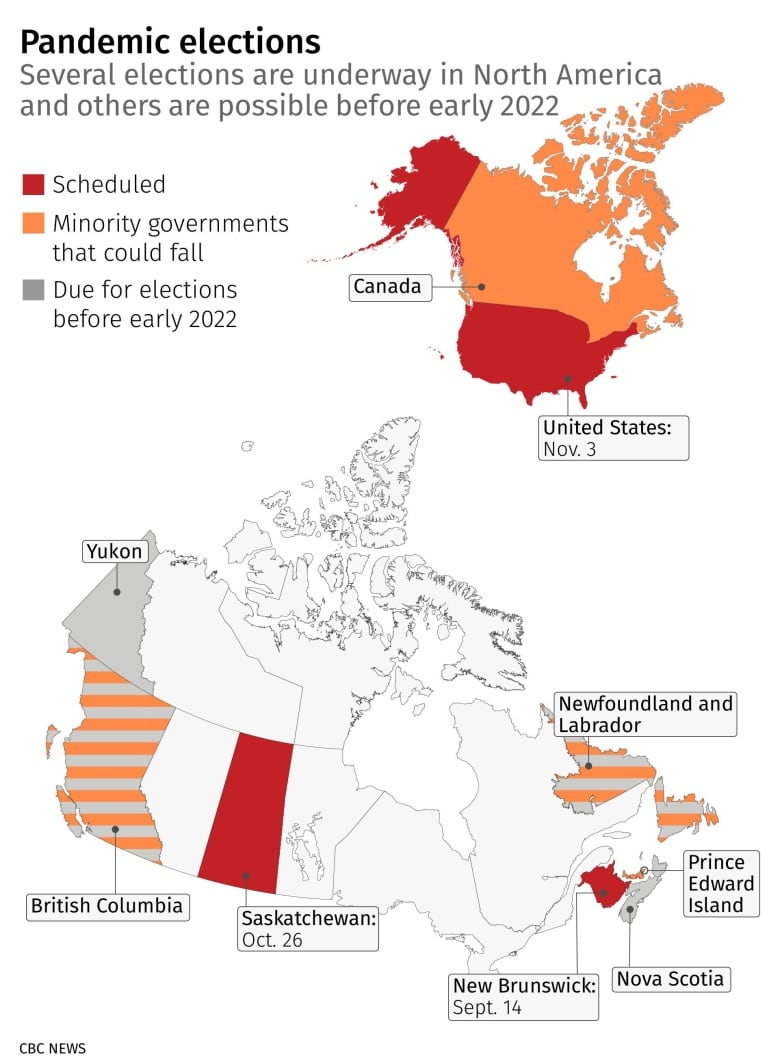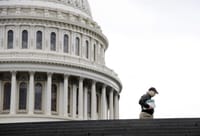Elections Canada is ramping up its plan to run a pandemic election that might come as early as this fall — a plan that could include a two-day weekend voting period instead of the traditional one-day Monday vote.
The move would help maintain physical distancing between voters and allow greater access to polling locations, such as schools, that otherwise would be unavailable, according to new information on the agency’s website.
Elections Canada says it’s also working on ways to serve voters in long-term care facilities by increasing the number of voting days and tailoring the approach taken to each facility.
The agency also is considering means to meet the potential demand for mail-in ballots. For example, ballots sent in before the voting deadline could continue to be accepted until the day following the two-day weekend polling period. The agency warns, however, that an increase in mail-in voting could delay the tabulation of results.
Under the heading “approach to a possible fall election,” Elections Canada says that if an election were to be called before the proposed measures are fully implemented or passed by Parliament, the agency would focus on physical distancing and other public health measures at polling stations and elections offices, including providing protective equipment for workers.
“Given the current minority government, an election could take place at any time,” the website reads.
Formal recommendations will be put to Parliament in September after Elections Canada consults with stakeholders and surveys Canadians.
“The health and safety of all participants in the electoral process is of paramount importance: this includes electors, thousands of election workers and candidates and their workers,” the website reads.
“As a result, Elections Canada reviewed its procedures and internal capacity in order to prepare for the delivery of an accessible, safe and secure election.”
Some of the measures already in the works by Elections Canada include:
- Implementing physical distancing and other public health guidelines at polling places and local Elections Canada offices.
- Buying masks and single-use pencils to be given to voters. Voters also will have the option of bringing their own masks, pens or pencils.
- Changing the agency’s model of operations to reduce the number of workers needed in order to facilitate physical distancing.
- Eliminating the Vote on Campus program, since most colleges and universities are delivering programs online.
- Expanding virtual training for electoral workers to limit the number of in-person interactions.
Elections Canada said it is not considering online voting at this time.
“Implementing such a change would require significant planning and testing in order to ensure that the agency preserves certain aspects of the vote, including confidentiality, secrecy, reliability and integrity,” the website reads. “Given the current operational and time constraints, this option can not be explored properly at this time.”
The agency is now determining the cost of proposed pandemic-related changes. An estimate will be released after an assessment is complete.
Elections Canada says it is taking part in a COVID-19 election preparation working group of experts from electoral management bodies across the country, and is monitoring media reports about election issues nationally and internationally.
New Brunswick is going to be the first jurisdiction in Canada to hold a pandemic election; its vote is scheduled for Sept. 14. Officials there are expecting more people to participate with mail-in ballots. Other precautions are in place to ensure safety, such as physical distancing at polling stations.

Elections Canada also has conducted research on potential voter turnout and the uptake for various voting methods.
As of mid-August 2020, that research suggests most Canadians would vote in person, either at a polling station (29.4 per cent) or at an advance polling station (28.6 per cent), while others (21.8 per cent) said they would prefer to vote by mail.
In an “extreme and unexpected case,” based on the advice of public health experts, the Chief Electoral Officer could determine it’s not possible to run an election in one or more electoral districts and recommend that the election be postponed.
That has never happened in Elections Canada’s history.
Conservative MP Michael Chong said Canadians are anxious and concerned about the risk posed by COVID-19 during an election.
“It’s at times of crisis that our democratic values are tested. That’s why it’s important that Elections Canada uphold our democratic values by ensuring the health and safety of Canadians during an election while maintaining confidence in the integrity of the election,” he said in a media statement.
NDP MP Daniel Blaikie said that the Liberal government itself made an early election more likely when it prorogued Parliament until Sept. 23, suspending all House of Commons business and temporarily halting the work of parliamentary committees probing the WE Charity controversy.
“The NDP understands that, above all, Canadians are looking for certainty and support from their government right now,” Blaikie said in a press statement. “We stand ready to work with the government and the other parties in the House to steer the best possible course for Canadians through the pandemic and to build for a better Canada coming out of the crisis.
“Last week, the government took a serious step in the wrong direction by shutting down Parliament … That kind of brinksmanship can create the conditions that trigger an election, even when most people agree it is not in the public interest.”

